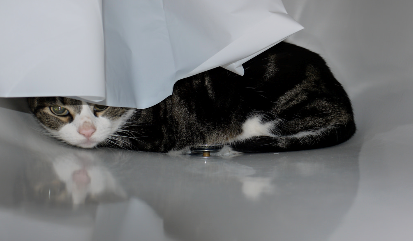How to Recognize Signs of Pain and What to Do to Manage It

How do Our Pets Show Us Signs of Pain?


Since our pets are not able to tell us when they are uncomfortable or in pain, knowing how to recognize the signs of discomfort in our furry companions is one of the many responsibilities we have as pet owners. Another important responsibility we have to our pets is knowing our options in aiding their pain relief.
Recognizing pain or discomfort in your pet is the key. Keep in mind that, they can sometimes be good at hiding or masking their pain. Some of the indicators of discomfort are changes in behavior, bodily functions and your pet’s breathing. If breathing becomes rapid, panting, or short this can be an indicator of pain issues. Also, a more general sign may be a change in your pets general demeanor including a lack of desire to socialize. With any of these changes there can be irregular patterns occurring in activity level, eating, drinking or bathroom use which may be signs that your pet is in pain.
Cats are more likely to hide when in pain and will seek out spaces they don’t normally use, such as under beds or in closets. In dogs, you may see their ears or tail back or down. Both cats and dogs can become unusually irritable and may want to play less. These can all be signs that your pet is in discomfort and needs visit to the veterinarian.
Bringing any information you think that may have contributed to your pet’s discomfort to the appointment can be helpful. There are an infinite number of reasons your pet may be uncomfortable and this information may help the doctor better identify what may be causing the pain. Anything from normal aging to a bee sting or a sprained paw could be the cause of discomfort.
Diagnosing may include lab work and/or digital radiography. After which options for pain management can be provided. There are a variety of routes to explore in managing pain, and it will differ if it is short-term acute pain or chronic pain. Treatment options fall under the following: medications, supplements, laser therapy, other therapies and possibly surgery.
At South Town Animal Hospital, the Veterinarian can prescribe medications and/or supplements. South Town carries Standard Process which are “.. supplements made with whole food and other ingredients to provide the body with nutrients that are found in nature but aren’t always found in the average pet diet. These formulas supply vitamins, minerals, trace minerals, and phytonutrients in forms as close as possible to how nature intended – providing whole food nutrient solutions that support the body’s amazing ability to heal itself.”
In addition, South Town provides laser therapy which promotes healing in the body and is performed by trained veterinary professionals over a period of multiple short sessions. Laser therapy speeds up cellular healing to help with numerous conditions such as wounds, allergies, sprains, strains and fractures, post-surgical healing and pain relief, ear infections, geriatric care, and arthritis.
Other therapies include water therapy and physical therapy. ‘The Puddle Pet Aqua Fitness and Nutrition’ facility is conveniently located next to South Town Animal Hospital. At The Puddle, certified swim instructors aid your pet in supervised swims in an indoor heated pool. The warm water helps promote circulation and relaxes tired muscles. Swim therapy aids in pre- and post- surgical management support, relieves pressure on the joints, strengthens and retrains muscles, exercises the cardiovascular system, aids in weight loss, increases range of motion, and improves confidence, relieves anxiety, and reduces stress.
If your pet requires more physical stimulation than swimming can provide, there are certified pet physical therapists. Using a variety of different methods, physical therapy can help with pre- or post- operative support, as well as a number of other conditions. Speak with your Veterinarian if you think this is what your pet needs. They can provide you with a referral to a specialist.
Surgery may be an option, but surgical pain management is typically done as a last resort in the veterinary field. Usually surgical pain relief will be done after supplements or prescription drugs or other therapies aren’t quite managing the pain and more is needed in aiding your pet.
Overall, there are many routes to pain relief for your pet. Seeking advice and/or treatment from your Veterinarian will help guide you to the best options for your pets health and comfort level.


